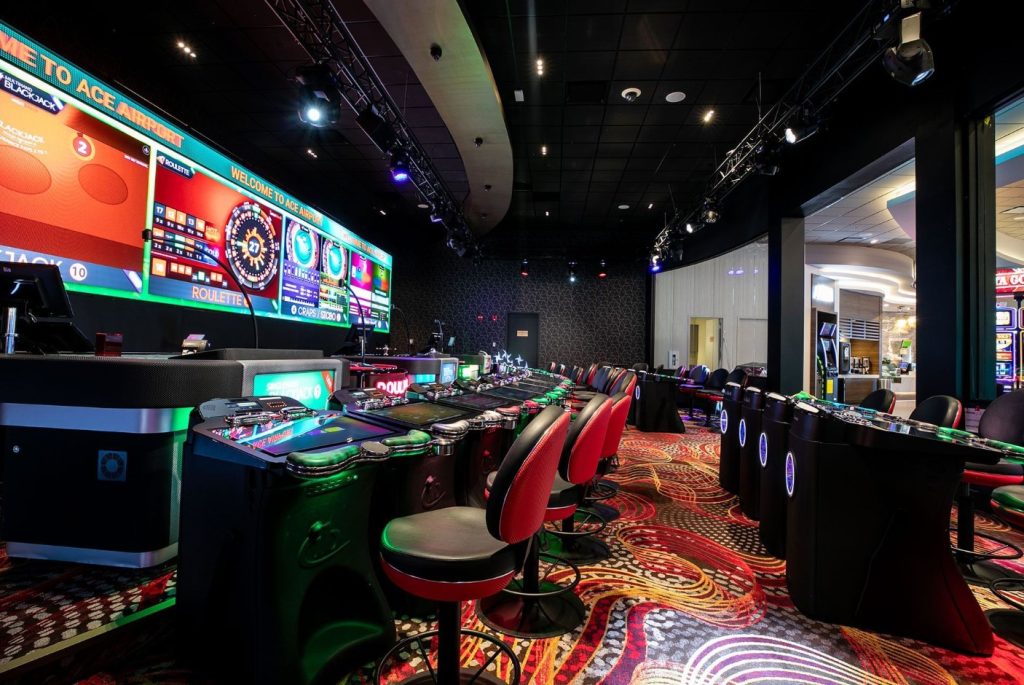Casinos are vibrant, fast-paced environments where money moves rapidly across tables, machines, and counters. Behind the flashing lights and clinking coins lies a meticulously structured financial system, ensuring security, accuracy, and compliance. One of the pivotal roles in this system is the casino banker.
Table of Contents
So, what does a banker do at a casino? While it may not be a role that interacts with customers as much as dealers or floor managers, the banker plays an essential part in maintaining the integrity and financial operations of the casino.
Overview of the Banker Role
The casino banker, sometimes referred to as a cage cashier, vault clerk, or chip banker, is responsible for handling the flow of cash, chips, and other financial instruments within the casino. Their job is more than just counting money—it involves reconciling balances, maintaining detailed records, enforcing internal controls, and supporting both guests and employees with their financial transactions.
Key Responsibilities of a Casino Banker
| Responsibility | Details |
|---|---|
| Handling Chips and Cash | Issuing and receiving chips, cash, tokens, and vouchers to/from employees. |
| Cage Operations | Working from the cashier’s cage to manage player and dealer transactions. |
| Record Keeping | Logging all transactions to ensure accuracy and compliance. |
| Bank Reconciliation | Balancing daily accounts and reporting any discrepancies. |
| Compliance & Security | Adhering to state gaming laws and internal control standards. |
| Customer Transactions | Assisting players with check cashing, credit advances, or chip exchanges. |
| Employee Support | Providing chips, fills, and credits to tables for game operations. |
Work Environment and Structure
Bankers typically work in or near the casino cage, a secured area where financial transactions take place. Larger casinos may have multiple banking roles with specific responsibilities, such as main bankers, chip bankers, or vault clerks.
Types of Casino Bankers
| Type | Role Focus |
|---|---|
| Main Banker | Manages the central bank and oversees all cash flow between cage and games. |
| Chip Banker | Issues and receives gaming chips and ensures accurate chip count on tables. |
| Vault Clerk | Responsible for large cash holdings, drop box handling, and armored transport. |
| Cage Cashier | Handles direct customer service transactions at the cashier’s cage. |
Each banker role contributes to a seamless operation that safeguards the casino’s financial assets and ensures smooth transactions for both players and employees.
Typical Day of a Casino Banker
While each shift may differ based on the size and type of casino, a typical day for a banker might look like this:
Sample Daily Schedule
| Time | Task |
|---|---|
| 7:00 AM | Begin shift, take over from previous banker, verify starting balance. |
| 8:00 AM | Process chip fills for morning table openings. |
| 10:00 AM | Assist customers with buy-ins and cash-outs. |
| 12:00 PM | Mid-shift reconciliation and documentation updates. |
| 2:00 PM | Process check or credit transactions for high rollers. |
| 4:00 PM | End-of-day reconciliation, prepare reports, secure all assets. |
| 5:00 PM | Hand over duties to next shift. |
This schedule may be adjusted depending on whether the banker works the day, swing, or graveyard shift.
Required Skills and Qualifications
To be effective, a casino banker must possess a combination of financial, analytical, and interpersonal skills. Accuracy and trustworthiness are paramount, given the amount of cash and sensitive data handled daily.
Core Skills
| Skill | Why It’s Important |
|---|---|
| Attention to Detail | Prevents financial discrepancies and ensures accurate transaction logging. |
| Math Proficiency | Essential for quick, error-free calculations. |
| Communication | Helps in coordinating with dealers, managers, and patrons. |
| Integrity and Discretion | Trust is vital when handling large sums of money. |
| Computer Literacy | Used for tracking systems and digital accounting tools. |
Regulations and Security
Casinos operate under strict legal and financial regulations, especially in regions like Las Vegas or Atlantic City. Bankers must be well-versed in:
- Anti-Money Laundering (AML) laws
- Title 31 compliance (U.S. federal financial reporting)
- Internal control procedures
- Surveillance protocols
They work closely with the compliance department and are often involved in the reporting of Suspicious Activity Reports (SARs) if unusual transactions occur.
Career Path and Advancement
A banker position is often a stepping stone for advancement within the casino industry. With experience, one can move into supervisory roles such as:
- Cage Supervisor
- Casino Accounting
- Finance or Treasury Management
- Compliance Officer
Many casino executives began their careers in roles like banker or dealer, gaining firsthand knowledge of operational processes.
While casino bankers may not be in the spotlight like dealers or pit bosses, they are the backbone of the financial operations in a casino. Their precision, reliability, and adherence to protocol ensure that money flows efficiently and securely throughout the establishment.
Without casino bankers, the glamorous world of gaming wouldn’t function. Their behind-the-scenes role ensures that what appears seamless and entertaining on the surface is backed by a system of accountability and trust.

